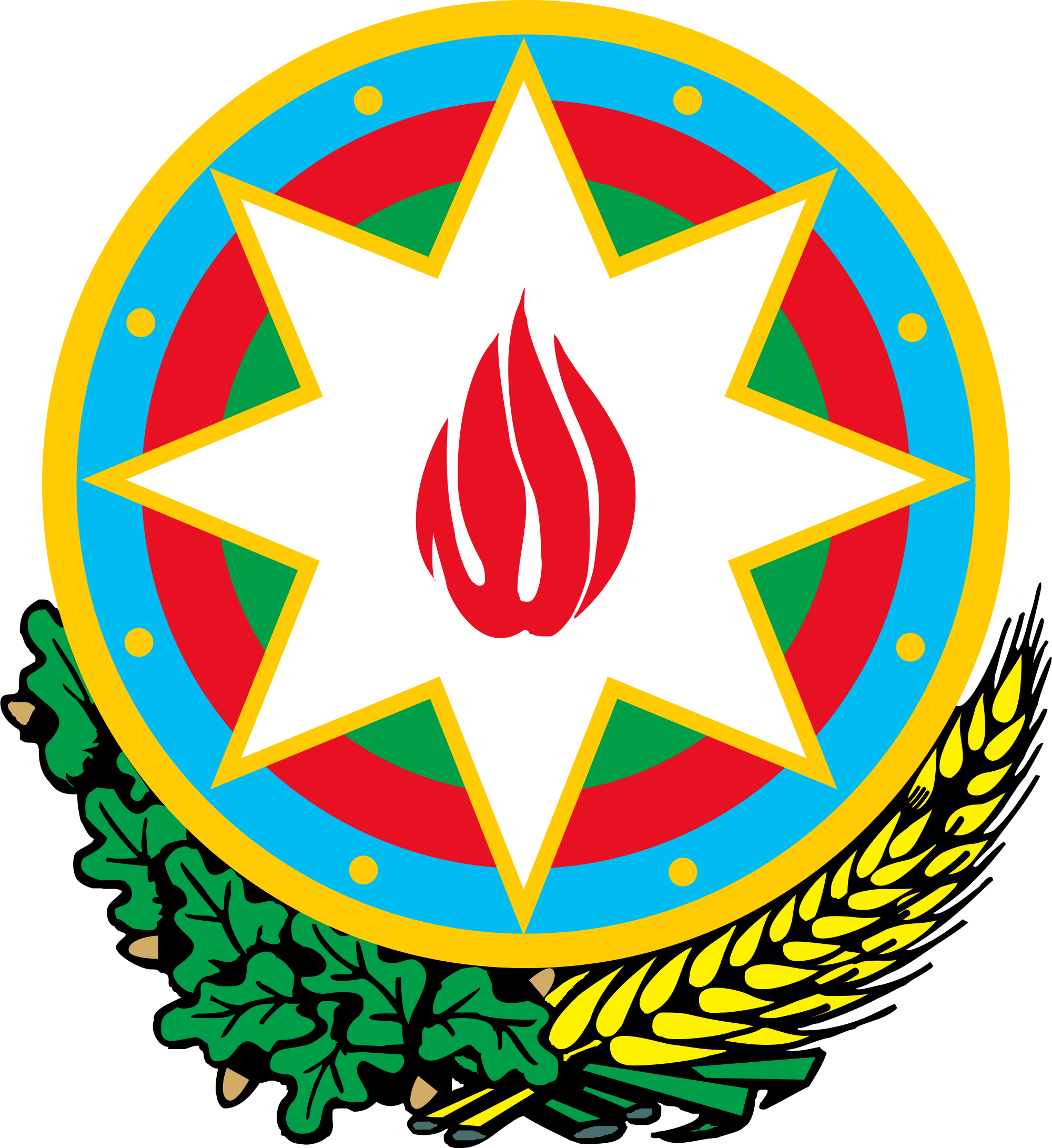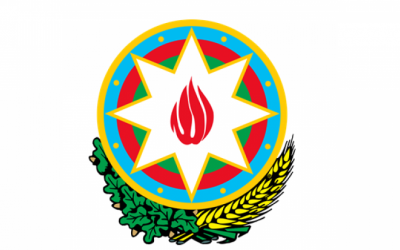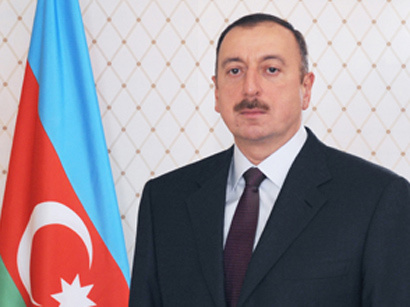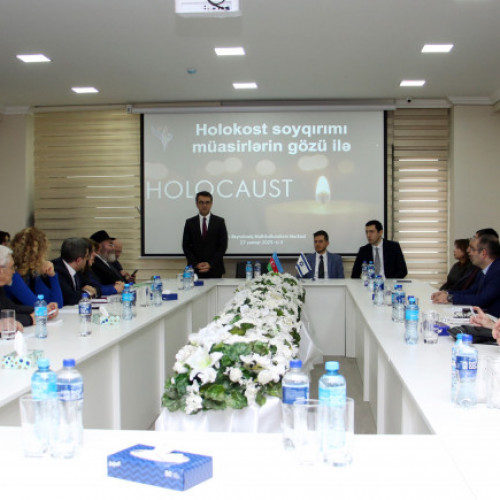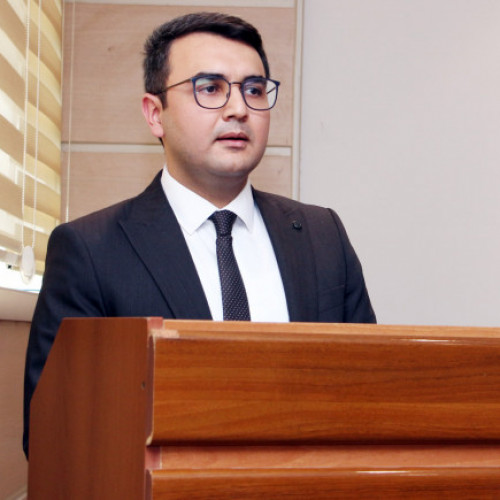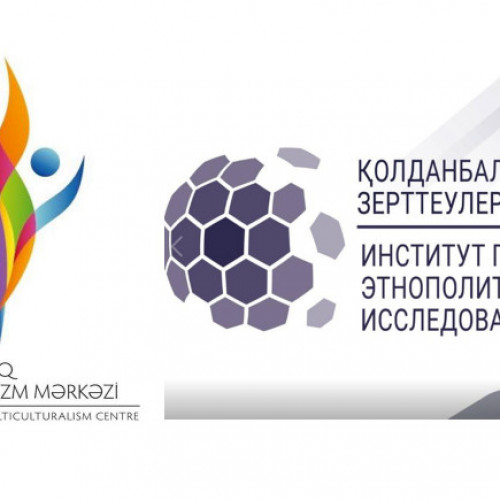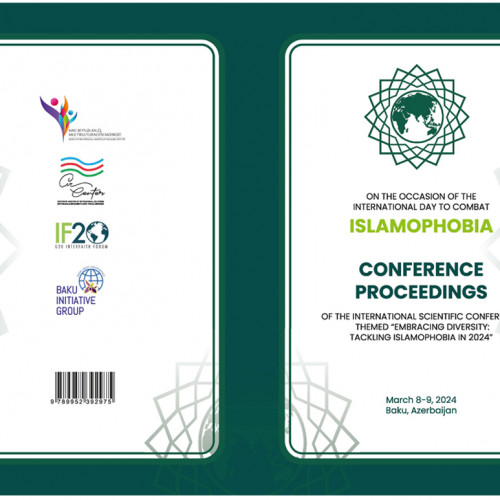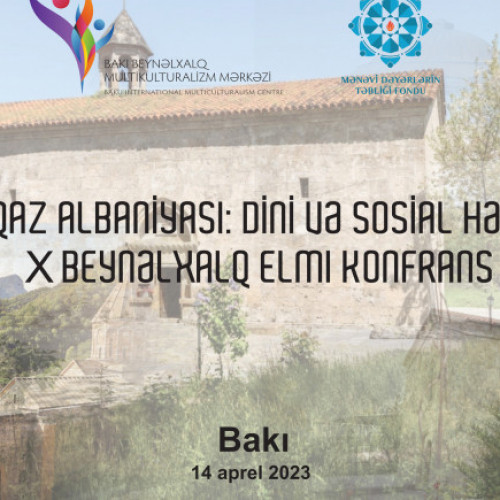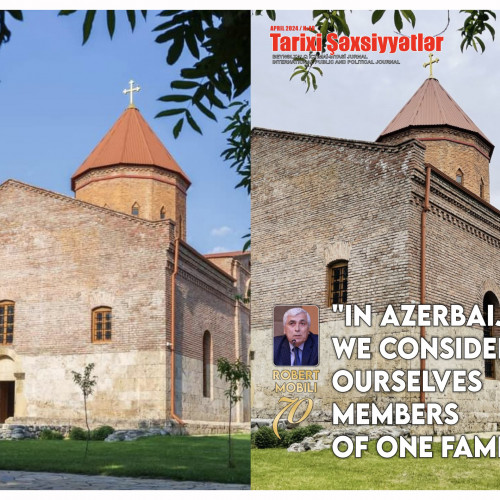Report on the Fight Against Racism and Discrimination in the Republic of Azerbaijan 2024
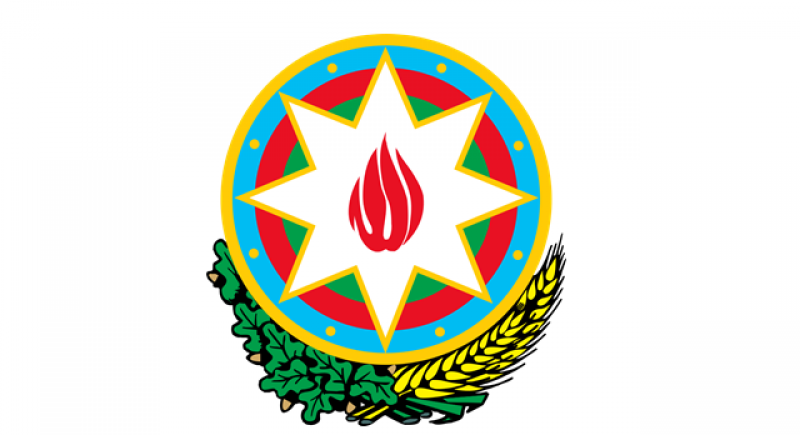
On the fight against racism and discrimination in the Republic of Azerbaijan
REPORT
I. General information
The state policy implemented in the field of protection of ethnic-cultural diversity in the Republic of Azerbaijan is based on centuries-old traditions of tolerance and rich multicultural values of the Azerbaijani people, democratic principles, pluralism, fundamental human rights, international law norms.
The Government of Azerbaijan has trade and cooperation relations with influential international organizations (UN, OSCE, Council of Europe, European Union, Organization of Islamic Cooperation, Non-Aligned Movement, etc.) in the field of human rights, including the protection of national minorities. The Republic has acceded to a number of international legal instruments on human rights and the protection of national minorities. The Council of Europe's “Framework Convention for the Protection of National Minorities” was signed by the government on February 1, 1995 and ratified by the Law of June 16, 2000.
On May 31, 1996, the Republic of Azerbaijan acceded to the United Nations international conventions “On the Elimination of All Forms of Racial Discrimination”, “On Prevention and Punishment of the Crime of Apartheid”, “On Prevention and Punishment of the Crime of Apartheid. Punishment of the Crime of Genocide”, acceded to the European Convention ‘For the Protection of Human Rights and Fundamental Freedoms’ on December 25, 2001.
By Law of November 26, 2009, the Republic of Azerbaijan acceded to the UNESCO “Convention on the Protection and Promotion of the Diversity of Cultural Expressions” and the Convention entered into force in Azerbaijan on May 15, 2010.
For the first time in the post-Soviet space, the Decree of the President of the Republic of Azerbaijan dated September 16, 1992 “On the protection of the rights and freedoms of national minorities, minority peoples and ethnic groups living in the Republic of Azerbaijan, state aid for the development of language and culture” was signed.
The “National Action Plan for the Protection of Human Rights” approved by the relevant Decree of the President of the Republic of Azerbaijan in 2006 includes “National Action in the field of increasing the effectiveness of the protection of human rights and freedoms”. On December 27, 2011, the Decree of the President of the Republic of Azerbaijan “On the protection and development of the cultural heritage of ethnic minorities of the Republic of Azerbaijan” is adopted.
II. Legal framework for combating racism and discrimination
According to the 1995 Constitution of the Republic of Azerbaijan and other legal acts, all forms of discrimination are prohibited and give rise to legal liability.
Article 25 of the Constitution (“Right to Equality”) states that “the state guarantees the equality of rights and freedoms of everyone, regardless of race, nationality, religion, language, sex, origin, property status, service position, belief, affiliation to political parties, trade unions and other public associations". It states that “restriction of human and civil rights and freedoms on the basis of race, nationality, religion, language, sex, origin, belief, political or social affiliation is prohibited”.
According to Articles 14 and 41 of the Law of the Republic of Azerbaijan “On the Media” it is prohibited to promote racial, religious, origin, sexual, ethnic and other forms of discrimination in the mass media, as well as to promote ethnic, racial discrimination or religious hostility.
According to Article 4 of the Law of the Republic of Azerbaijan “On Political Parties”, political parties promoting terrorism, religious extremism, violence and persecution, as well as promoting racial, religious, origin, sexual, ethnic and other forms of discrimination, the establishment and activities of parties creating racial, religious or ethnic hostility are not allowed.
According to Article 10 of the Law of the Republic of Azerbaijan “On the Means of Mass Information”, it is not allowed to slander the dignity and honor of citizens and the use of mass media with the aim of promoting war, violence and persecution, national, racial, communal hostility or intolerance, publishing defamatory rumors, false and biased articles.
In the field of protection of ethnic minorities. The most necessary principles for ensuring the protection of ethnic minorities in the Constitution of the Republic of Azerbaijan are the right to nationality and language (Article 44 “Right to nationality” - “Everyone has the right to preserve his nationality. No one shall be forced to change his nationality” and Article 45 ‘Right to use the mother tongue’ - ”Everyone has the right to use the mother tongue. Everyone has the right to receive education and training in any language. No one shall be deprived of the right to use his or her mother tongue").
Cultural and creative rights of ethnic minorities living in the Republic of Azerbaijan are regulated by the Law “On Culture”. According to paragraph 6.2 of Article 6 of the mentioned Law entitled “Ensuring Rights and Freedoms”, regardless of gender, race, language, religious and political beliefs, nationality, social status, social origin, health facilities, membership in public associations, all kinds of guarantees are provided that a person can exercise his rights and freedoms in the field of culture. According to 6.3.2 and 6.3.1 subsections of 6.3 paragraph of the same article, in the field of culture, the following equality is ensured by the State: equality of the peoples inhabiting the territory of the State, of the rights and freedoms of peoples, of the cultures of national minorities; equality of the peoples and national minorities inhabiting the territory of the State to preserve their culture, to define their cultural identity, to restore, strengthen and develop their cultural wealth.
Articles 7 and 8 of the Law of the Republic of Azerbaijan “On Culture” allow everyone to determine their cultural identity and the corresponding way of life, to preserve their national cultural identity, to freely choose their spiritual, aesthetic and other values, to promote and develop their cultural identity to cultural communities, to recognize the right to restore their historical and cultural sites. Paragraph 8.3 of Article 8 of the mentioned Law, entitled “The right to cultural identity”, emphasizes that the state supports the preservation and development of the identity of any cultural community.
In the Republic of Azerbaijan, the right of ethnic minorities to receive education in their mother tongue is regulated by the “Law on Education”. Paragraph 5.2 of Article 5 of the mentioned law entitled “State guarantee of the right to education” states as follows: “The State shall ensure that every citizen of the State, regardless of sex, race, language, religion, political belief, nationality, social status, origin, state of health, shall have the opportunity to receive education and shall ensure non-discrimination”. Article 7.2 of the Law on “Language of education” stipulates that citizens have the right to receive education in any language of their choice: “Taking into account the wishes of citizens and founders of educational institutions, according to the international agreements signed by the Republic of Azerbaijan or by agreement with the body (institution) designated by the relevant executive authority, teaching in educational institutions may be carried out in other languages in accordance with the educational standards of the relevant state”.
In the field of religion. State-religion relations in the Republic of Azerbaijan are based on secular values, principles of religious belief and freedom of conscience.
Article 18 of the Constitution of the Republic of Azerbaijan is the basic norm that determines the basis and legal status of state-religion relations. It shows the separation of religion from the state and the equality of all religious beliefs before the law. With this provision, the state declares its supreme will in relation to religions at the constitutional level.
Article 48 of the Constitution stipulates that everyone has the right to freedom of conscience, to independently determine his or her attitude towards religion, to practice any religion alone or in association with others, or not to practice any religion, and to manifest and disseminate his or her religious beliefs. According to this article, no one shall be compelled to manifest his/her religious beliefs and convictions, to perform religious rites or to participate in religious ceremonies.
The main normative legal act in the field of religion in Azerbaijan - the Law of the Republic of Azerbaijan “On Freedom of Religion” was adopted on August 20, 1992. This Law guarantees freedom of religious belief in accordance with the Constitution of the Republic of Azerbaijan and international treaties to which the Republic of Azerbaijan is a party, determines the status, rights and duties of religious institutions, and regulates relations arising from the activities of religious institutions.
Article 4 of the Law of the Republic of Azerbaijan “On Freedom of Religious Belief” regulates the equality of rights of persons regardless of their religious affiliation. It states that “Everyone, regardless of religious affiliation, is equal before the law and the courts. A person's religious affiliation may be indicated in official documents only at his or her request. No one may refuse or avoid duties prescribed by law on the grounds of religious belief. The substitution of one duty for another due to religious belief is permitted only in cases provided for by the legislation of the Republic of Azerbaijan”.
Legal responsibility for racism and discrimination. The Law of the Republic of Azerbaijan “On Combating Religious Extremism”, The Criminal Code of the Republic of Azerbaijan contains a number of provisions providing for civil liability for inciting national, racial, social or religious hatred, slander and defamation (Article 104). Articles 147, 148, 283 of the Criminal Code).
According to Article 283 of the Criminal Code, inciting national, racial, social or religious hatred and enmity is considered a crime, and inciting national, racial, social or religious hatred and enmity, humiliation of national dignity, as well as national, racial or religious affiliation depending on actions aimed at restricting the rights of citizens or determining their preferences, when committed openly, including through mass media, is punishable by a judicial fine of from eight thousand AZN to twelve thousand AZN or up to two years of correctional labor or imprisonment from two to four years. The same acts, if committed by an organized group, by a person in the exercise of his or her official duties, with the use or threat of the use of force, shall be punishable by imprisonment from three to five years.
III. Actions taken
In the field of working with ethnic minorities. The Baku International Multiculturalism Center (BIMC) was established by the Decree of the President of the Republic of Azerbaijan on May 15, 2014. BIMC has now become a platform for dialogue and exchange of ideas between representatives of ethnic and religious minorities. The Coordination Committee representing ethnic and religious minority organizations, public associations and cultural centers operates under this institution. At the same time, at the expense of the financial resources of the Azerbaijani state, multifaceted projects are being implemented in the field of promoting the unique cultures of ethnic minorities living in the country on the BIMC line.
Within the Institute of Law and Human Rights of the Azerbaijan National Academy of Sciences (ANAS), the Department of International Relations and Human Rights was established, which studies and analyzes the language, culture, history, ethnography of ethnic minorities. Within the Institute of Archaeology and Ethnography of ANAS, there is the Department of Ethno-sociological Research, which is engaged in the study of national minorities and small ethnic groups.
Monographs, scientific and collective works on the historical-cultural and ethnographic heritage of ethnic minorities living in Azerbaijan - Lezgi, Talish, Udi, German, Russian, Jewish, British, Tat, Khinalyk, etc. have been published. Collections of poetry and prose, samples of folklore, dictionaries in their own languages are regularly published and distributed, and this work continues.
Currently, more than 50 social and cultural organizations of ethnic minorities are officially registered in the country.
Azerbaijan State Radio regularly broadcasts radio programs in Russian, Lezgin, Kurdish, Talysh, Georgian and Armenian. More than 15 newspapers and magazines are published in their native languages and 5 regional television and radio channels operate in regions with compact residence of national minorities.
In addition to the Russian State Drama Theatre named after S. Vurgun in Baku, there are Russian ensembles in many leading theatres of the republic, the State Drama Theatre in Lankaran, the Lezgi State Drama Theatre in Gusar, the Georgian State Theatre in Gah. There are many musical and folklore groups operating in Baku and various regions of Azerbaijan, including more than 40 national minorities. In regions with compact settlements of national minorities - in the cities of Guba, Lankaran and Sheki - branches of the Union of Writers of Azerbaijan were created.
Currently, there are 16 general secondary schools in Azerbaijan with Russian-only education and 6 secondary schools with Georgian-only education; 345 international secondary schools (in Azerbaijani-Russian, Azerbaijani-Georgian, Azerbaijani-Russian-Georgian languages) operate in Azerbaijan.
In secondary schools (primary schools) in regions where national minorities live, teaching of native languages (Avar, Kurdish, Lezgin, Talysh, Sakhur, Tat, Udi, Khinalug, Hebrew) is organized. In addition, alphabets, educational programs and other textbooks, school dictionaries in the languages of ethnic minorities (Russian, Avar, Talysh, Kurdish, Lezgi, Sakhur, Tat, Udi, Khinalig, etc.) are printed at the expense of state funds and this work continues regularly.
According to 2022 data, Lezgi is taught in 105 schools, Talysh in 251 schools, Avar in 19 schools, Sakhur in 3 schools, Udi in 3 schools, Kurdish in 1 school, Kinalig in 1 school and Hebrew in 2 schools.
The Council for the preparation and publication of textbooks and programs in the languages of national minorities operates within the Ministry of Education. At the same time, in 1999, within the Scientific Research Institute of Pedagogical Sciences, a department - “Methodology of teaching national minority languages” was established to coordinate activities related to the preparation and publication of curricula, textbooks, dictionaries, teaching and other materials in national minority languages.
In 2003, a special Jewish high school teaching the Jewish language (Hebrew), history and culture was opened in Baku, and Hebrew language teaching was organized at the Faculty of Oriental Studies of Baku State University. In October 2010, the “Chabad Or-Avner” Jewish educational complex for Jewish children, built by the Heydar Aliyev Foundation and the “Or-Avner” Foundation, was opened in Baku. This educational institution, built to teach Jewish language, culture and history, serves as a cultural center for Jews living in the Caucasus and the entire Caspian region.
Baku Slavic University, which has rich scientific and pedagogical traditions, as well as Russian departments in all the country's higher schools operate in Baku. The Baku Slavic University has a Sunday school where the Ukrainian language is taught and a club for studying the languages and cultures of the peoples of the Caucasus.
Letters of congratulations are traditionally signed by the President of the Republic of Azerbaijan on the occasion of national-religious holidays and minority ceremonies.
Every year in Azerbaijan, national and religious holidays of ethnic minorities are celebrated, numerous conferences and round tables, publicity ceremonies, poetry and music evenings, concert-folklore programs and other social and cultural events are held. Traditional music festivals, gala concerts, ethnographic exhibitions and other events dedicated to the art of national minorities are organized under the slogan “Azerbaijan - homeland” with the support of the Heydar Aliyev Foundation and the Ministry of Culture.
Social and cultural organizations of ethnic minorities in the Republic of Azerbaijan have the opportunity to receive financial assistance by applying to the Council of State Support to Non-Governmental Organizations under the President of the Republic of Azerbaijan with relevant grant projects. The Council, along with Baku International Multiculturalism Center, organizes a grant competition covering various topics related to ethnic minorities.
In the last three years, with the funds of the Council of State Support to Non-Governmental Organizations under the President of the Republic of Azerbaijan (a total of 155,900 manat was allocated), 20 grant projects have been implemented in Baku and other cities of the country, including in the regions densely populated by ethnic minorities, for the promotion of tolerance and multicultural values in the Republic of Azerbaijan, the language and culture of ethnic minorities, the protection of cultural heritage. Within the framework of the projects, various surveys, visits to historical and cultural monuments were organized, booklets and books were published, documentary films were made, a website was created, educational materials were published in mass media.
In the field of working with religious minorities. Azerbaijan's population is 96 percent Muslim and 4 percent Christian, Jewish and other religious beliefs.
Since the beginning of the process of re-registration of religious institutions (September 1, 2009), 995 religious organizations are subject to state registration. From a religious point of view, 957 of them are Islamic, 38 are non-Muslim (Christian - 27; Jewish - 8; Krishna - 1; Baha'i - 2). 16 churches and 7 synagogues operate in Azerbaijan.
In its policy in the field of religion, the Azerbaijani government has always focused on ensuring the religious needs of ethnic minorities. In Baku and other cities and towns of the country, as well as in the southern and northern regions where national minorities live compactly, many historical and religious monuments have been repaired and restored at the expense of the state and philanthropists. Also, new mosques, churches and synagogues have been built and put into service.
The “Jen Mironosets” temple, which was not used for its intended purpose during the Soviet period, was returned to the Russian Orthodox Church and completely renovated at the expense of an Azerbaijani businessman.
A Roman Catholic church was built in the center of Baku and the official opening ceremony was held in March 2008.
On November 15, 2013, the Orthodox Religious-Cultural Centre of the Baku and Azerbaijan Diocese was opened with the participation of the President of Azerbaijan, Ilham Aliyev.
The historic Lutheran church in Baku was restored by order of the President of the Republic of Azerbaijan and opened for use in December 2010, creating the necessary conditions for the Lutheran religious community to hold religious services and ceremonies in the church. Two historic German-Lutheran churches in the regions were substantially restored and renovated.
The Armenian-Gregorian church and its library in the center of Baku city are protected by the state.
With the initiative and support of the President of the Republic of Azerbaijan, two new synagogues for European and Mountain Jews were built in 2002 and 2011, respectively, in the center of the city of Baku, which is distinguished not only in Azerbaijan but also in the Caucasus. Due to their architectural features and size, in 2010 the synagogues in the Red Settlement of the Guba Region and the Oghuz Region were opened to the use of believers after major repairs.
In June 2011, the Georgian Orthodox temple of St. Nino Church in Gakh district was inaugurated after renovation, the “Chotari” church in the Nij settlement of Gabala district was renovated, The Albanian Church of Saint Virgin Mary was restored and put into use by the Heydar Aliyev Foundation in this settlement.
Since 2011, by order of President of the Republic of Azerbaijan Ilham Aliyev, financial aid has been allocated from the state budget to religious organizations, including Christian (Orthodox, Catholic, various Protestant communities), Jewish, Baha'i and Baku Krishna religious communities. At the same time, the state provides free natural gas to Muslim places of worship in the country, as well as churches, synagogues, Molokan and Protestant places of worship.
On November 16, 2024, the House of Tolerance was opened in Baku.
International events. Azerbaijan is actively involved in the development and promotion of intercultural and interreligious dialogue in the world, hosting prestigious international events. In December 2008, the foundation of the Council of Europe was laid in Baku at the conference “Intercultural dialogue is the basis for sustainable development and peace in Europe and neighboring regions” with the participation of ministers of culture of the Council of Europe member states. On the initiative of President of the Republic of Azerbaijan Ilham Aliyev, the foundation of the “Baku Process” was laid.
The World Forum for Intercultural Dialogue was organized in 2011, 2013, 2015, 2017, 2019 and 2024 as part of the Baku Process. A meeting of religious leaders was held in Baku on 1-3 May 2024 within the framework of the VI World Forum for Intercultural Dialogue on “Dialogue for peace and global security: cooperation and interaction”.
The World Summit of Religious Leaders was held in Baku in 2010 and 2019, the Baku International Humanitarian Forum was held in 2011, 2012, 2013, 2014, 2016 and 2018, and the 7th Global Forum of the United Nations Alliance of Civilizations was held in 2016.
On March 8, 2024, the “Interfaith Harmony” festival was held with the joint organization of religious organizations operating in Azerbaijan.
On March 8-9, 2024, a scientific conference was organized in Baku by the Baku International Multiculturalism Center (BIMC), Center of Analysis of International Relations (AIR Center), G20 Interfaith Forum and Baku Initiative Group.
On November 5-6, 2024, the Global Baku Summit of World Religious Leaders on the theme "World religions for a green planet" was held in Baku within the framework of the 29th session of the Conference of the Parties to the United Nations Framework Convention on Climate Change (COP29).
Conclusion
Taking into account the requirements of international legal norms and national legislation in the fight against racism and discrimination, the government of Azerbaijan considers the promotion of democratic coexistence, ethno-religious tolerance and multicultural values as one of the priority directions of state policy and carries out purposeful and multifaceted activities in this field. Thanks to this policy, Azerbaijan is recognized in the world as a country of tolerance and multiculturalism.

